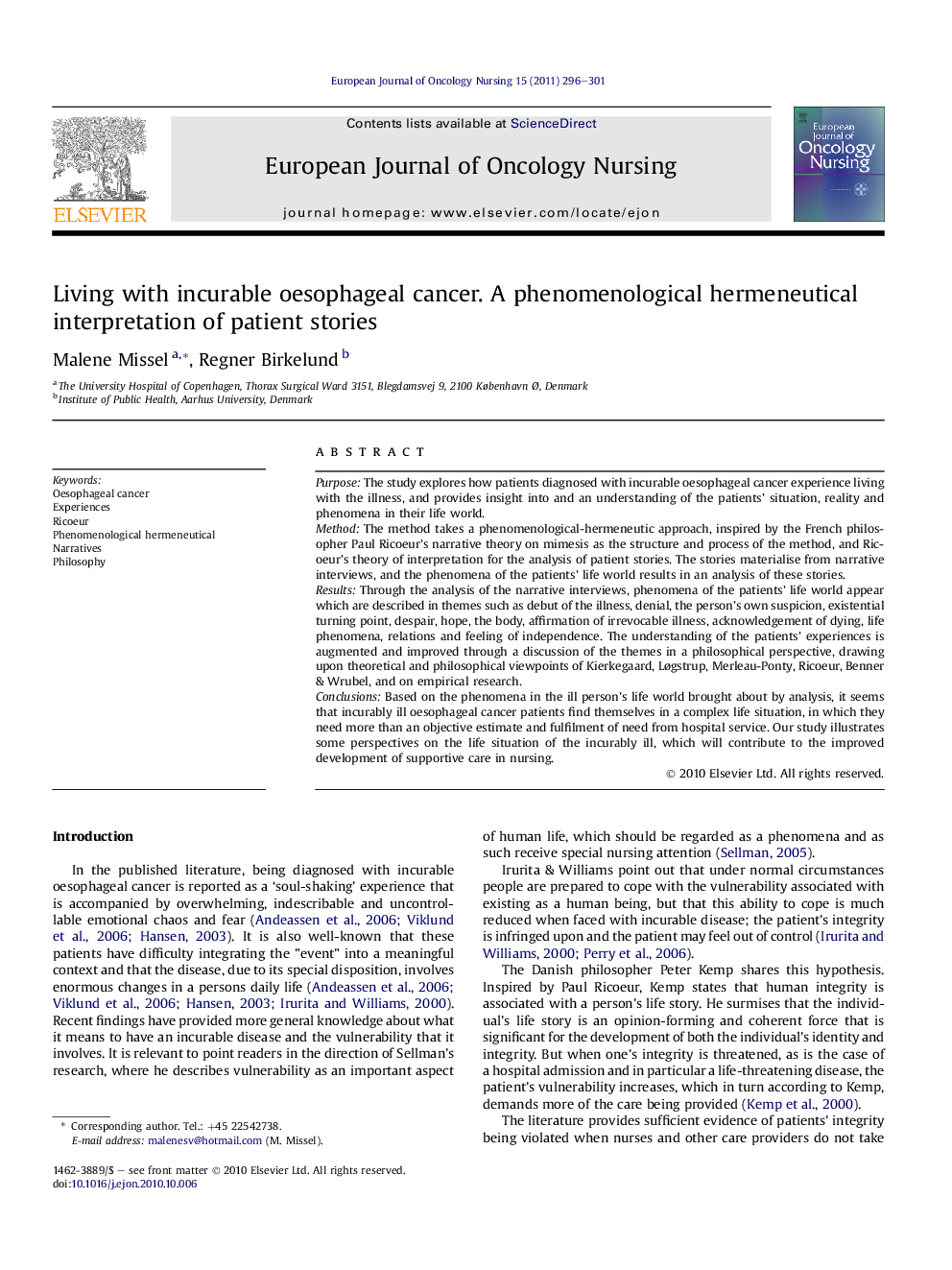| Article ID | Journal | Published Year | Pages | File Type |
|---|---|---|---|---|
| 2649528 | European Journal of Oncology Nursing | 2011 | 6 Pages |
PurposeThe study explores how patients diagnosed with incurable oesophageal cancer experience living with the illness, and provides insight into and an understanding of the patients’ situation, reality and phenomena in their life world.MethodThe method takes a phenomenological-hermeneutic approach, inspired by the French philosopher Paul Ricoeur’s narrative theory on mimesis as the structure and process of the method, and Ricoeur’s theory of interpretation for the analysis of patient stories. The stories materialise from narrative interviews, and the phenomena of the patients’ life world results in an analysis of these stories.ResultsThrough the analysis of the narrative interviews, phenomena of the patients’ life world appear which are described in themes such as debut of the illness, denial, the person’s own suspicion, existential turning point, despair, hope, the body, affirmation of irrevocable illness, acknowledgement of dying, life phenomena, relations and feeling of independence. The understanding of the patients’ experiences is augmented and improved through a discussion of the themes in a philosophical perspective, drawing upon theoretical and philosophical viewpoints of Kierkegaard, Løgstrup, Merleau-Ponty, Ricoeur, Benner & Wrubel, and on empirical research.ConclusionsBased on the phenomena in the ill person’s life world brought about by analysis, it seems that incurably ill oesophageal cancer patients find themselves in a complex life situation, in which they need more than an objective estimate and fulfilment of need from hospital service. Our study illustrates some perspectives on the life situation of the incurably ill, which will contribute to the improved development of supportive care in nursing.
